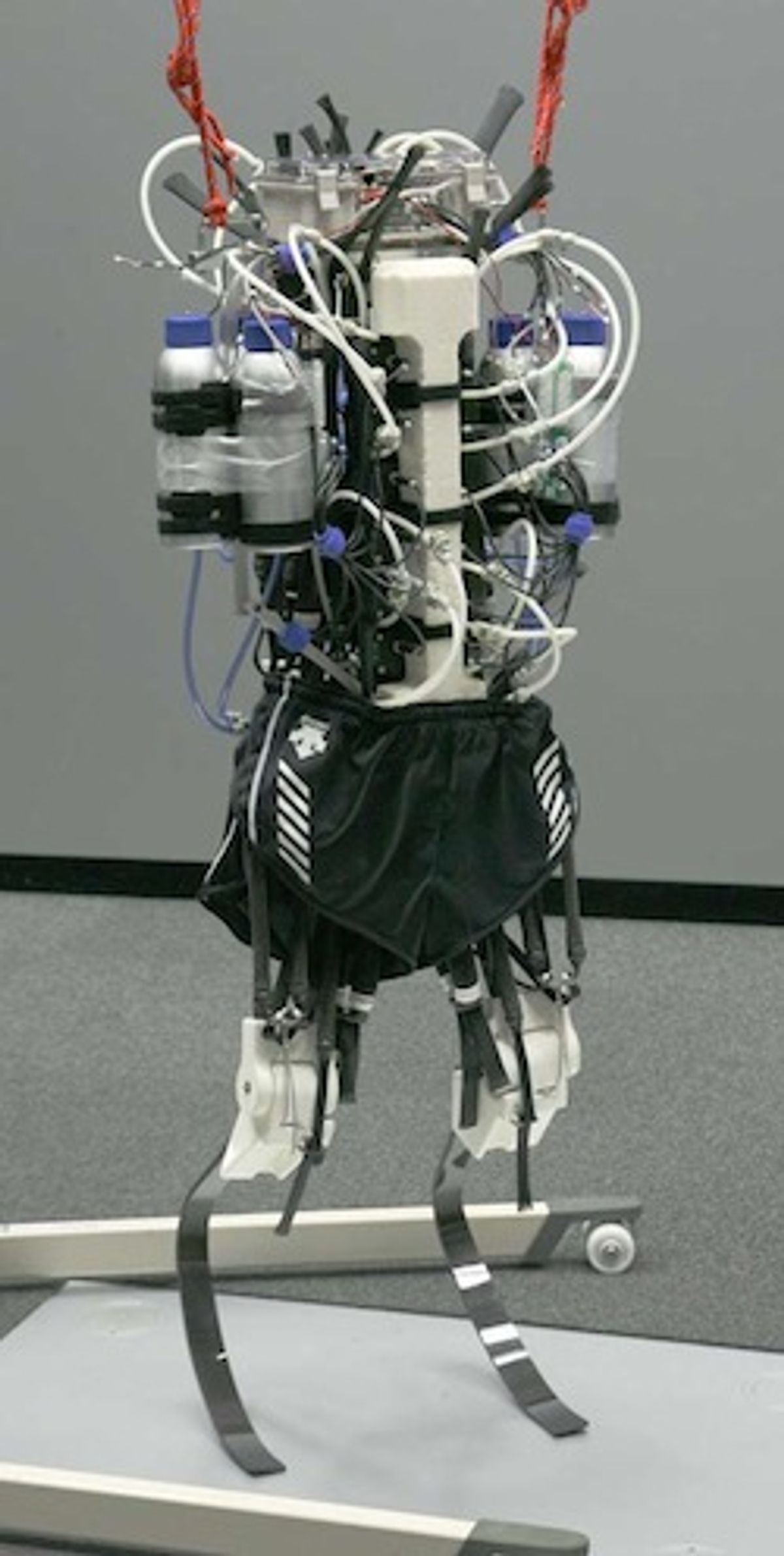But not like Asimo, whose running gait is a bit, well, mechanical.
Niiyama wants a robot with the vigor and agility of a human sprinter.
To do that, he's building a legged bot that mimics our musculoskeletal system.
He calls his robot Athlete. Each leg has seven sets of artificial muscles. The sets, each with one to six pneumatic actuators, correspond to muscles in the human body -- gluteus maximus, adductor, hamstring, and so forth [see diagram below].
To simplify things a bit, the robot uses prosthetic blades, of the type that double amputees use to run.
And to add a human touch, Niiyama makes the robot wear a pair of black shorts.
Human runners with prosthetic feet, like South African paralympic runner Oscar Pistorius, nicknamed the "Blade Runner," "give me great inspiration," Niiyama tells me.
The robot has touch sensors on each foot and an inertial measurement unit on the torso for detecting the body's orientation.
Niiyama developed the robot as a PhD candidate at the Department of Mechano-Informatics of the University of Tokyo with colleague Satoshi Nishikawa, under the supervision of their advisor, Professor Yasuo Kuniyoshi.
They presented their project at the IEEE Humanoids 2010 conference in Nashville, Tenn., last week.
The researchers are now teaching Athlete to run. They programmed the robot to activate its artificial muscles with the same timing and pattern of a person's muscles during running.
Niiyama, who has since become a post-doc at MIT's Robot Locomotion Group in Cambridge, Mass., says they're trying to better understand how we control our muscles during a challenging task like running.
Previously, he studied another complex motion, jumping, by developing a bipedal hopping robot called Mowgli.
Traditional humanoid robots like Asimo run by changing the angle of their joints. Their legs are rigid, powered by motors coupled to reduction gears. In other words, they run like robots.
People, as well as animals, don't keep track of the position of their joints -- we use our viscoelastic muscles and tendons to bounce against the ground, propelling our bodies forward while maintaining balance.
Athlete can take three, sometimes five steps, moving at about 1.2 meters per second. Then it falls. Watch:
It's a short dash, but the researchers are optimistic. They plan to fine tune the artificial muscles and improve the feedback control system. And then hopefully move their tests to a real running track.
Images: Ryuma Niiyama
Erico Guizzo is the Director of Digital Innovation at IEEE Spectrum, and cofounder of the IEEE Robots Guide, an award-winning interactive site about robotics. He oversees the operation, integration, and new feature development for all digital properties and platforms, including the Spectrum website, newsletters, CMS, editorial workflow systems, and analytics and AI tools. An IEEE Member, he is an electrical engineer by training and has a master’s degree in science writing from MIT.





